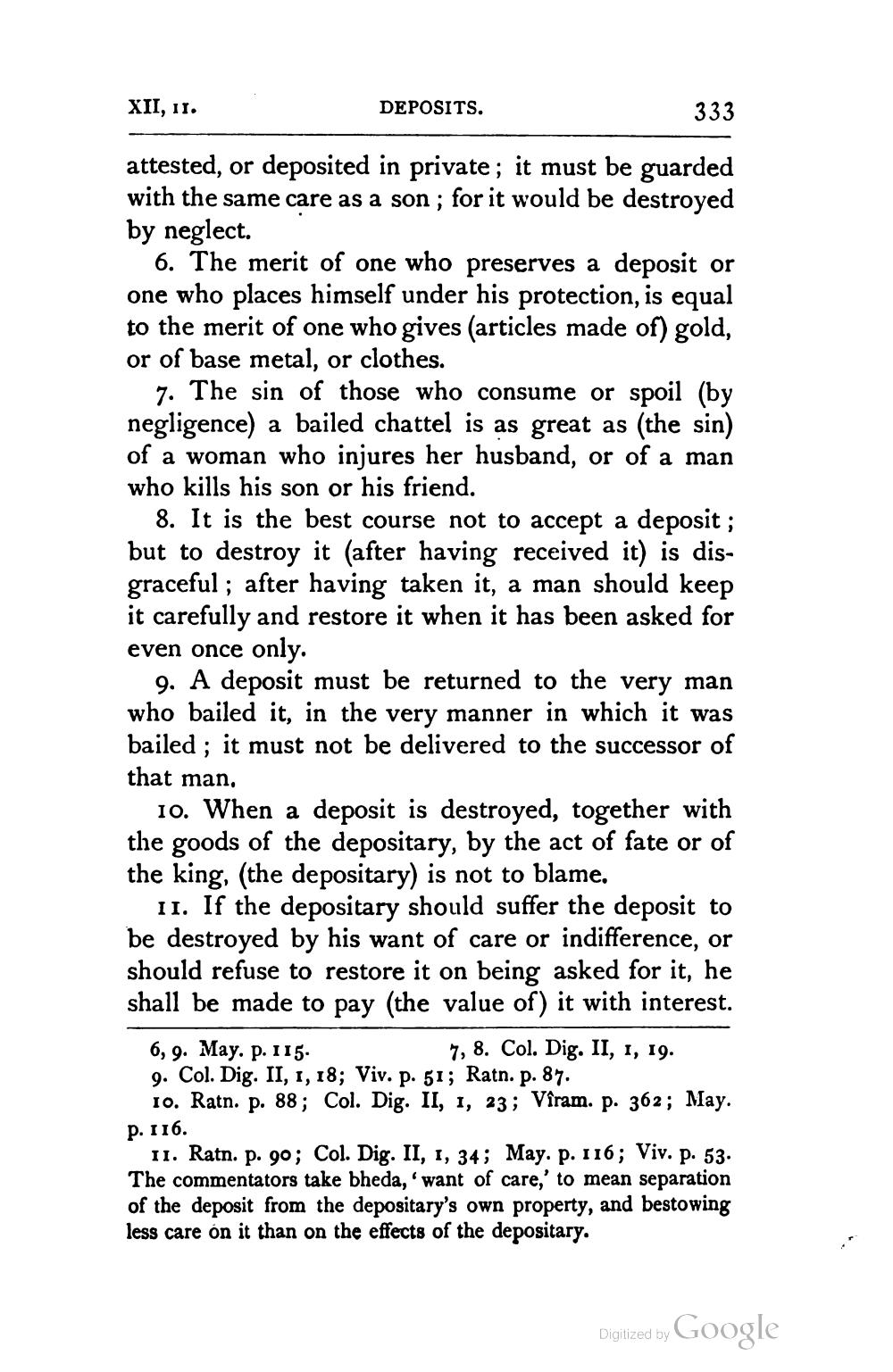________________
XII, 11.
DEPOSITS.
333
attested, or deposited in private; it must be guarded with the same care as a son ; for it would be destroyed by neglect.
6. The merit of one who preserves a deposit or one who places himself under his protection, is equal to the merit of one who gives (articles made of) gold, or of base metal, or clothes.
7. The sin of those who consume or spoil (by negligence) a bailed chattel is as great as (the sin) of a woman who injures her husband, or of a man who kills his son or his friend.
8. It is the best course not to accept a deposit ; but to destroy it (after having received it) is disgraceful ; after having taken it, a man should keep it carefully and restore it when it has been asked for even once only.
9. A deposit must be returned to the very man who bailed it, in the very manner in which it was bailed; it must not be delivered to the successor of that man,
10. When a deposit is destroyed, together with the goods of the depositary, by the act of fate or of the king, (the depositary) is not to blame.
11. If the depositary should suffer the deposit to be destroyed by his want of care or indifference, or should refuse to restore it on being asked for it, he shall be made to pay (the value of) it with interest. 6, 9. May. p. 115.
7, 8. Col. Dig. II, 1, 19. 9. Col. Dig. II, 1, 18; Viv. p. 51; Ratn. p. 87.
10. Ratn. p. 88; Col. Dig. II, 1, 23; Vîram. p. 362; May. P. 116.
11. Ratn. p. 90; Col. Dig. II, 1, 34; May. p. 116; Viv. p. 53. The commentators take bheda, 'want of care,' to mean separation
sitary's own property, and bestowing less care on it than on the effects of the depositary.
Digitized by Google




